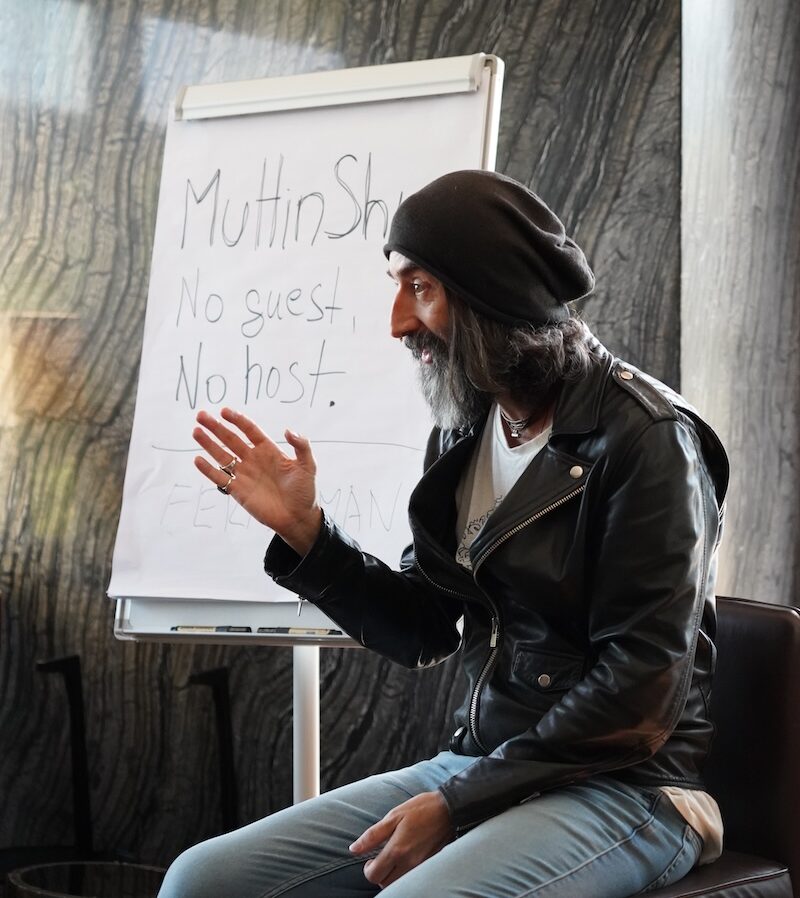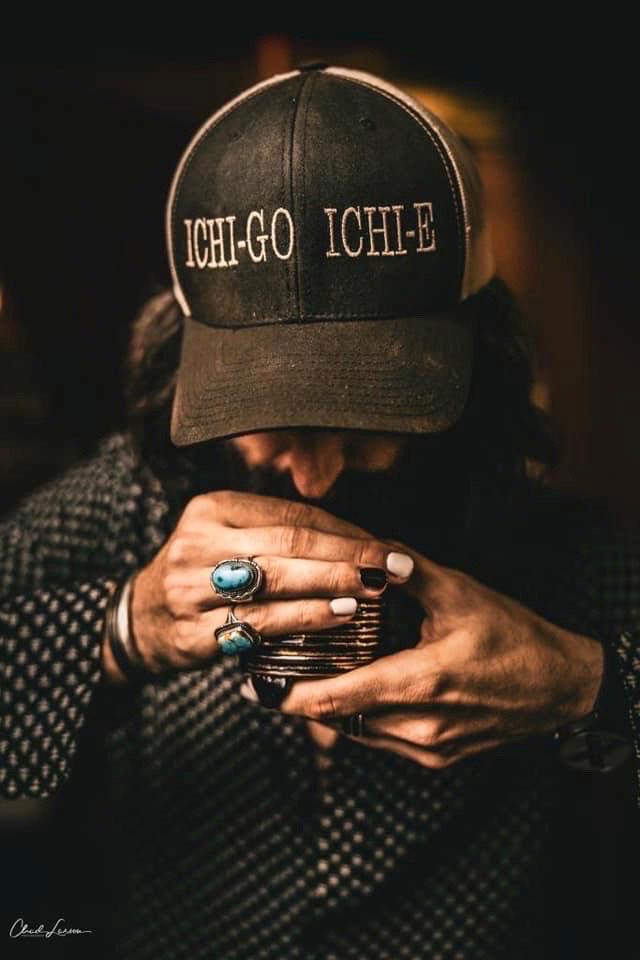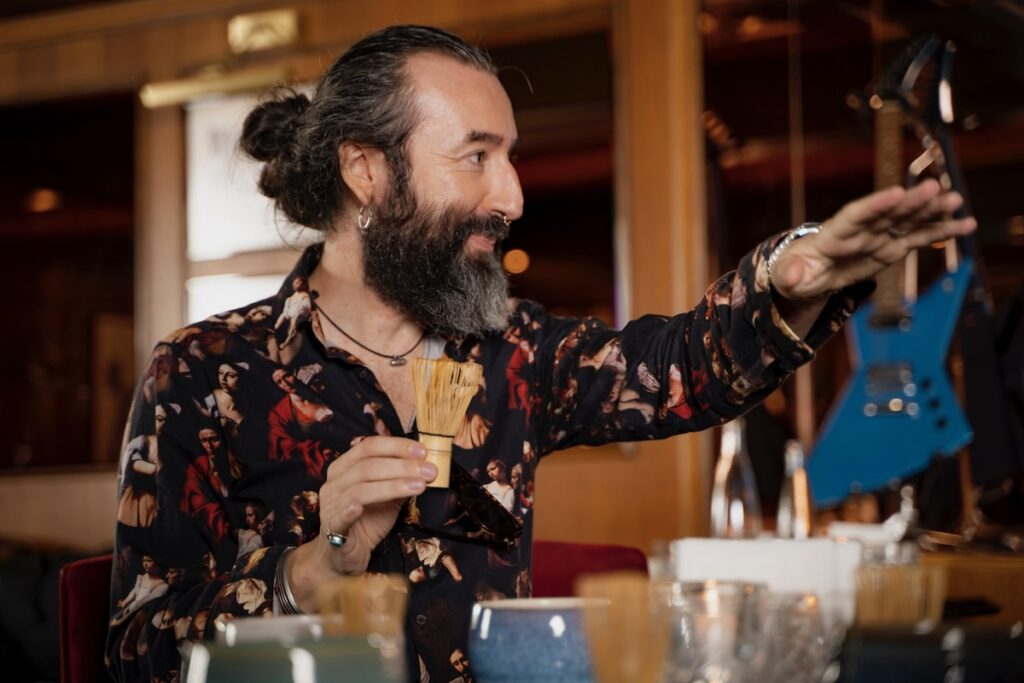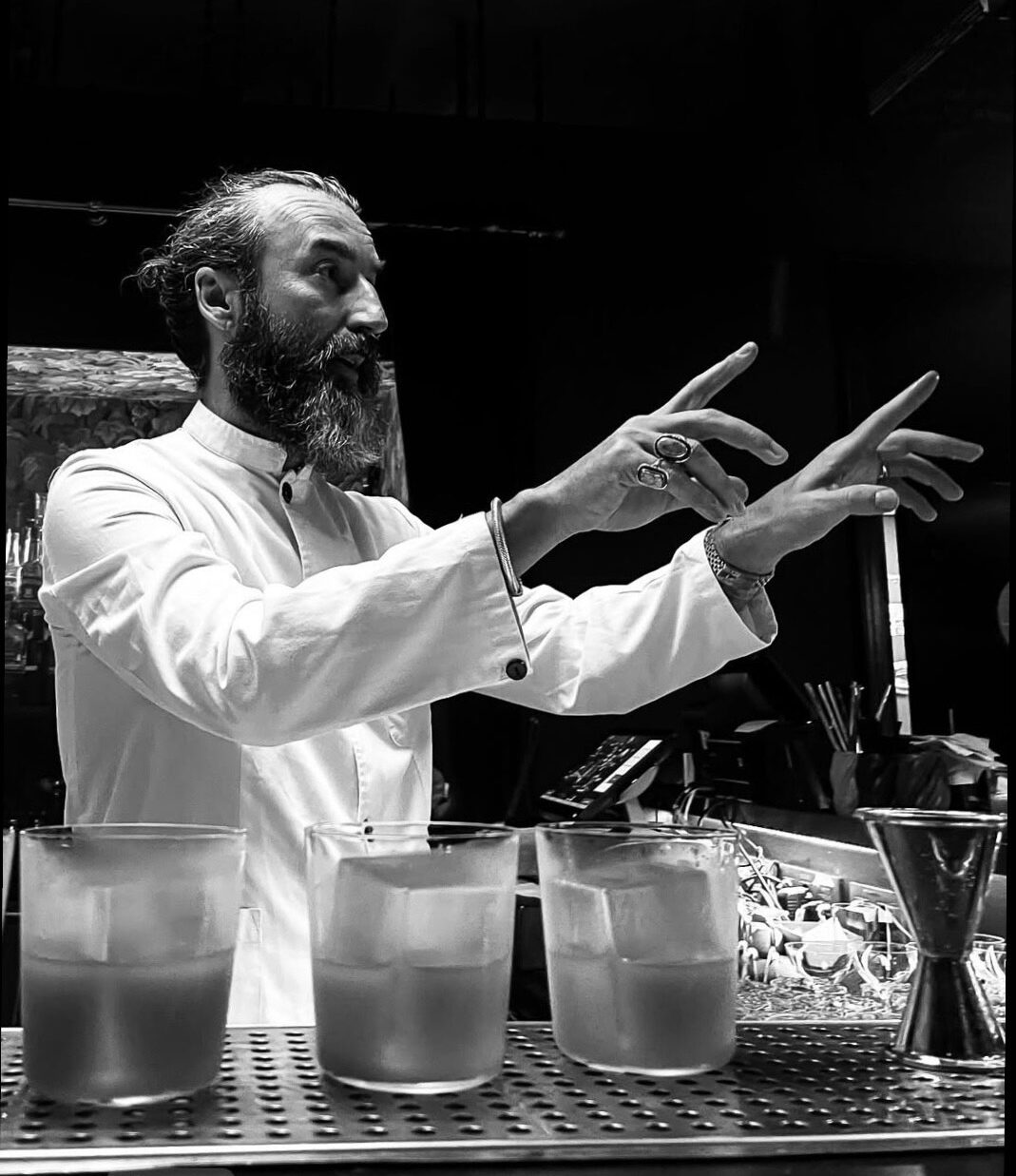Emotional Intelligence and Intuitive Service
How do you help others in the industry cultivate emotional intelligence and empathy, which are critical for exceptional hospitality?
By helping them experience it for themselves.
You can’t teach empathy through a PowerPoint. You have to feel it. That’s why my workshops are designed as immersive experiences. Instead of just talking about hospitality, I put participants in situations where they become the guest.
I use exercises where they see themselves through the eyes of others. I guide them through Ferasa techniques so they learn to observe people not just with their eyes, but with their whole being.
When you experience what it’s like to be deeply seen, understood, and cared for, you can’t help but bring that same energy to your guests. That’s real hospitality.
Also, by helping them see who they really are.
One of the most powerful ways I do this is through Headless Heartfelt Hospitality.
It’s not just a concept—it’s an experience. A shift in perception. A realization.
I guide people through headless experiments—simple yet profound exercises that reveal that we are not what we think we are. That there is no separation between host and guest, server and served.
True hospitality begins when we recognize our boundless, open nature.
When someone experiences this, they stop performing hospitality—and start being hospitality.
Their ego steps aside, their presence deepens, and service becomes effortless, natural, and real.
This is the essence of Muhinshu—No Guest, No Host.
It’s not a technique. It’s not a strategy. It’s a shift in being.
And once you see it, you can never unsee it.

What is Ferasa, and why do you include it in your work?
Al Ferasa is the ancient art of physiognomy—the ability to read facial features to gain insights into a person’s character, emotions, moods, and inner world. It’s about understanding the subtle cues that our faces reveal, allowing us to connect more deeply with those we serve.
By mastering Ferasa, professionals can anticipate needs, tailor their interactions, and create experiences that resonate on a personal level. It’s not about making snap judgments, but fostering genuine empathy and connection.
It’s about understanding people on a deeper level, tuning into who they are beyond the surface. It’s the skill of seeing beyond what’s said. And in hospitality, that’s everything.
I’ve been fascinated by Ferasa for years—it’s even in my Instagram handle, @FERASAMAN. It’s become a way of life, not just for reading guests, but for understanding myself too.
When you know yourself better, you move differently, speak differently, serve differently. You become more present, more intuitive, more human. That’s why I teach it in my workshops—not as a gimmick, but as a real tool for creating real connections in a world where people crave to be SEEN, not just served.
Bartending, at its highest level, is not about serving drinks—it’s about serving people. And how can you serve someone if you don’t understand them?
Think about it: a guest walks in. Their face, their posture, the way they carry themselves—it all speaks before they say a word.
If you know how to read it, you don’t just take their order; you anticipate what they need. A subtle furrow in the brow, a tightness in the lips, a glance toward the exit—these tiny signals tell you if they want conversation or silence, if they need an uplifting cocktail or something grounding, if they are open to connection or simply need a moment of peace.
This is what I teach in my workshops. I guide bartenders and hospitality professionals in developing a sixth sense—not a mystical ability, but a heightened awareness.
Attention to detail is the highest form of respect. It’s about being present enough to see your guest fully—not just as a transaction, but as a human being with unspoken needs.
Ferasa has been practiced for centuries—used by Bedouins in the desert to recognize a stranger’s character in a single glance, by great leaders to understand their allies and rivals, by healers to see what words could not express.
In hospitality, it becomes a tool for true connection. It elevates service beyond routine gestures into something deeply personal, almost effortless—because when you truly see someone, you already know how to serve them.
This doesn’t just apply to guests—it applies to teams, to leadership, to every human interaction.
When you understand people, you understand everything.
That’s what hospitality should be—not just a set of steps, but a way of seeing.
A way of being.
Personal Growth and Daily Practices
What fulfills you the most in your journey?
That I’m not fake. I don’t teach hospitality from a textbook. I live it.
I’ve had awakenings, near-death experiences, moments of deep transformation. And all of that has shaped not just how I work, but how I live, how I serve, how I teach.
The biggest fulfillment? Seeing others wake up to a new way of thinking about hospitality—where it’s not just about drinks, but about human connection, presence, and real, heartfelt service. That I get to be myself—and that this is now becoming a “job” in itself.
When I gave an interview last year at the Nikka Whisky Bar in Omotesando, Tokyo, I casually said, “My job is being me.” It was an honest answer. But what surprised me was how many bartenders later came to me asking, “How can I also make a job out of just being myself?”
The truth is, it’s not about finding a job that lets you be yourself. It’s about becoming so deeply yourself that people want to learn from you, experience your energy, and be a part of what you create. That’s what fulfills me: living my philosophy, embodying it, and seeing how it inspires others to do the same.
It’s not about teaching techniques. It’s about helping others remember who they really are.
And I’ve also stopped taking myself so seriously. It didn’t happen right after the heart thing—it took a while. But I got there. I feel like I’m finally home in myself.
I no longer let other people’s opinions define me. Especially not the ones that feel like they’re carved in stone. No way. Life’s too short for that.
My body, my mind, and my heart are more in sync than ever. That shift happened after the collapse—when I decided to put my well-being first. Strangely enough, I feel better in my late 40s than I ever did in my 20s. I’m more grounded, more present, and more joyful.
These days, I just try to enjoy life as it is. I enjoy the act of being hospitable—not as a job, but as something deeply human. No performing. No pretending. Just being.
And honestly, it’s fun.
There’s joy in making someone feel at home.
There’s joy in listening, in noticing the little things, in sharing a laugh with a stranger.
That’s the kind of joy that doesn’t cost anything—and gives everything.
If there’s something I’d want to pass on to others, maybe it’s this:
You don’t need to be perfect.
You’re already enough.
Imperfectly perfect. A one-of-a-kind human being.
Just be that.
That’s where the real hospitableness begins.

What daily practices or rituals help you maintain your focus on mindfulness and intentional service?
I move. I breathe. I listen.
My rituals are simple, but they keep me sharp:
Ferasa — Observing people. Even in daily life, I practice “reading” people—not to judge, but to understand.
Kohdo — Listening to scents. Scent is a powerful way to anchor myself in the present moment.
Breathwork & Voice Training — If I can control my breath, I can control my energy, my presence, and the energy of a room.
I teach these same practices in my workshops—because real hospitality isn’t just what we do, it’s how we show up while doing it. That’s what guests feel.
It all changed in 2014. I collapsed in the shower after a trip from Copenhagen. My body shut down—too many flights, too many shifts, too much unnecessary stress, and not enough care.
When the ambulance came and brought me back, the first thing I said to the doctor was:
“If I make it through this night, I change everything.”
And I did.
I went fully raw vegan.
I quit alcohol completely—ten years sober now.
I started training my body and mind—Chi Kung, Zazen, Muay Thai.
I wake up with the sun. I drink fresh coconut water. I fuel myself with two Medjool dates before a shift.
And I’m powered like a thunderstorm.
Because here’s the truth—
You can’t take care of others if you don’t take care of yourself first.
Hospitality will eat you alive if you let it.
If you’re in this game long-term, you need to cultivate real well-being—physically, mentally, emotionally.
That’s what I teach.
That’s what I live.
How do you keep evolving and growing, both professionally and personally?
By staying a student, always.
I study acting techniques (Michael Chekhov), human psychology, face-reading (Al Ferasa), philosophy, and ancient cultural traditions.
Because bartending is not just about mixing drinks—it’s about understanding people, storytelling, and presence.
By never stopping. By never settling.
I don’t believe in getting comfortable.
That’s why I keep expanding my work beyond bartending—into Ferasa, Headless Heartfelt Hospitality, Kohdo, and new platforms for experiential learning.
With my own company, VADRNA Groove Vibrations, or as the Nikka Brand Global Hospitality Advocate, I now provide bespoke interactive workshops, seminars, one-to-one coaching, and team-building experiences for bars, hotels, hospitality teams—and also outside of the hospitality industry.
But I don’t teach formulas.
I create experiences that awaken something real in people—whether it’s through hospitality, scent, movement, or presence.
Because at the end of the day, the way we serve mirrors the way we live.
And my goal is to help people serve—and live—with more depth, more authenticity, and more connection.

Books, Wisdom, and Inspiration
What do you read?
Uff. I’ve been reading since I was a kid. Books have always been there—teachers, companions, mirrors. I don’t read casually. I dive in. I get obsessed. I underline, I stop mid-sentence to reflect. I read to feel, to see, to remember that I know nothing.
Some books break me open. The Ten Thousand Things and Depending On No-Thing by Robert Saltzman did that. They don’t give you answers—they strip them away. Honest, raw, no spiritual bypassing. Every human being should read at least one of them.
Guru Vachaka Kovai by Muruganar—Ramana Maharshi‘s teachings—hit me straight in the gut. No fluff. No ego. Just truth. Same with Douglas Harding‘s On Having No Head and Richard Lang‘s work on headlessness. You don’t just read them—you experience them. They change how you see yourself. How you see others.
I also study Michael Chekhov‘s books on acting. Because presence is an art. The way we move, breathe, take space—it’s all part of how we serve. How we show up. Hospitality starts in the body.
Shakespeare too. No one captured what it means to be human better than him.
“When we are born, we cry that we are come to this great stage of fools.” That’s hospitality too, right? This messy, beautiful theater of life where we serve, witness, and sometimes just hold space.
I go deep into Polynesian culture. Same with Native American wisdom—but only from Indigenous voices. I want to learn from those who live it, not those who studied it from the outside.
And poetry. Always poetry. Leonard Cohen‘s Book of Longing and The Flame. Nick Cave‘s The Sick Bag Song and Faith, Hope and Carnage. These guys write like they bleed onto the page. It’s real. It’s human.
I also read books on scent—because smell is memory. And memory is emotion. And hospitality is all about creating emotional memory, right?
In the end, I read because I need to.
To stay curious. To stay humble.
To keep remembering: I don’t know.
And that’s the most honest place to be.
Looking Ahead
What are your hopes for the future of the global hospitality industry?
That we stop chasing awards and trends—and return to humanity.
I see a shift toward genuine connection, deeper appreciation of process, and mutual respect.
That hospitality returns to its roots: mutual respect, appreciation, and real human connection. One of the most meaningful ways I get to contribute to this shift is through my role as the Nikka Brand Global Hospitality Advocate. With Nikka, I’m not just representing whisky—I’m representing a way of being.
The Nikka Perfect Serve competition is not about who makes the best drink; it’s about who creates the best experience. It’s a competition rooted in presence, hospitality, and human connection. And through this global platform, we’re reminding bartenders that the real craft isn’t just in the glass—it’s in how we make others feel.
Beyond that, I’m also bringing Kohdo—the ancient Japanese art of listening to scents—back into my work after five years. In 2025, I’ll be running scent and spirit workshops in 15 countries across 4 continents.
Why? Because scent is memory. Scent is emotion. Scent can slow us down, make us more aware, and bring a sense of presence—something we desperately need in hospitality today.
My hope is that the industry starts valuing these deeper aspects of the craft: the way we listen, the way we perceive, the way we respect each other, and the way we make every interaction meaningful.
That we stop with the bullshit. Hospitality is losing its soul. The industry is obsessed with awards, rankings, Instagrammable moments. Everyone’s in a rush to be seen, to be featured, to be validated. But for what? Without guests, we are nothing.
The real revolution? Getting back to what hospitality actually is. It’s not about you. It’s about the guest. It’s not about climbing some imaginary ladder. It’s about creating moments that matter. It’s about respect, attention, and a genuine desire to serve.
That we stop chasing awards and trends—and return to human connection. Also, India is emerging as a leader in the bar industry. The energy, passion, and craftsmanship there remind me of why I fell in love with this world.

What advice would you give to young professionals in hospitality?
Be human first. Before you’re a bartender, before you’re a host, before you’re anything—you are a human being serving another human being. That means: Get out of your own head. See your guests. Feel their energy. Serve from that place. Forget perfection. Focus on connection. Don’t chase trends—build depth. The best in this game aren’t the ones with the biggest Instagram following. They’re the ones who know how to make someone feel truly welcome. The secret? Be unapologetically yourself. That’s where the magic happens.
If you could summarize your philosophy of hospitality in one sentence, what would it be?
“There is no guest, no host—just a shared moment of mutual respect and appreciation.”
No guest, no host. Just presence. Because when you strip away the titles, the roles, the expectations—all that’s left is this moment. And how you choose to show up for it.
What do you hope people take away from your teachings?
That hospitality is a way of life. Not a job. Not a role. A way of being.
That real presence is the greatest gift we can offer. That beyond techniques and trends, the essence of hospitality is seeing, feeling, and honoring each moment as if it will never come again—because it won’t. And above all, that being yourself is the most powerful thing you can bring to the table.
That hospitality is not a job. It’s a way of moving through the world. It’s not about learning the perfect shake, the right recipe, the best technique. It’s about how you see people. How you make them feel. And if there’s one thing I want people to take away from my work, it’s this: We were born hospitable. When you take away ego, when you let go of the need to prove yourself—what’s left is an open, welcoming presence. That’s the real you. That’s the real host. And if we can embody that, even for a moment—this world becomes a more hospitable place.
That hospitality is not a job—it’s a way of being. That the best thing you can bring to the bar, to the table, to any interaction—is yourself, fully present, fully alive.
But the most important lesson? Stay humble. Never stop learning. Never lose sight of the guest.
And you know, when I think about what makes our approach to hospitality and service so unique, something clicks. I remember reading a passage written by a Japanese journalist about the 1964 Tokyo Olympics, describing visits to different Olympic Houses, each representing their country’s hospitality and service culture.
But when they visited the Czechoslovakian House, something was different. It wasn’t just about efficiency or flawless execution. The journalist wrote that in the way they were served, they could still feel something deeply human. There was warmth. There was presence. There was soul. The hospitality wasn’t mechanical—it was personal.
And when I read that, I thought, Yes. This is it. This is the essence of who we are. What makes our hospitality stand out around the world is not perfection—it’s humanity.
We serve from the heart. We recognize our own humanity in others.
And that’s exactly why the Japanese concept of MUHINSHU—which comes from the heart of the Japanese tea ceremony—resonates so deeply with me. Because Muhinshu means there is no guest, no host—only two human beings, meeting in a shared moment. It means dissolving barriers. It means serving without ego. It means creating something real.
And when I look back, I realize this understanding of Muhinshu didn’t start with my work in Japan, or in bars, or in workshops. It started at home. It started with my parents. With the way we were raised. The way they taught me, without ever putting it into words, that hospitality is not about service—it’s about connection. About respect. About presence. For this, I feel nothing but deep gratitude.
And this is why I share these Japanese philosophies, these ways of being, all over the world—not because they are “trendy,” not because they are exotic, but because they fully align with my own values, my own way of seeing life.
This is also why Masataka Taketsuru’s story moves me so much. His vision, his journey, his unwavering belief in bringing something deeper into the world—it’s something I feel in my own bones. It’s why NIKKA is more than just a brand to me—it’s something I truly connect with, beyond the spirits, beyond the craft. I align with the spirit of the man who built it.
The same way I resonate with Sen no Rikyū and Sen Sōshitsu XV—two revolutionary tea masters who shaped the way I understand Ichigo Ichie, Omotenashi, and, most of all, Muhinshu.
Sen no Rikyū wasn’t just serving tea—he was redefining presence. He stripped away the unnecessary, showing that true hospitality isn’t about extravagance, but about sincerity. One bowl of tea, shared in a single fleeting moment, meant more than any grand gesture. That’s Ichigo Ichie—this moment, right now, never to be repeated.
Sen Sōshitsu XV carried that spirit forward as the 15th-generation Grand Master of Urasenke. His teachings took Omotenashi beyond formality—it became a philosophy of deep, intuitive care. And that’s where Muhinshu comes in—the understanding that in the purest moment of hospitality, there is no guest, no host. Just two people, fully present, fully human, fully connected.
These two didn’t just influence how I see hospitality. They shaped my mission.
But above all, this is about something bigger. This is about being fully human.
We are wasting our lives. Our precious time. Our irreplaceable moments. We stare at screens. We scroll through endless feeds. We look without seeing. We hear without listening. We are losing the most important thing we have—each other.
And yet, this world is alive with connection. We just have to wake up to it.
We are not separate. Without you, I am nothing. Nothing. Because this is how life works. Like the cells in our body, we exist to support each other, to uplift each other, to pay attention to each other.
That is what real hospitality is. Not business. Not service. Not technique. Humanity. Connection. Presence.
So let’s stop waiting. Let’s stop wasting this life. Let’s celebrate what it means to be fully human.
Not tomorrow. Not later. Now.
Because this is it. This is not a rehearsal.
Live. Feel. Give. Be.
Be fully, unapologetically, beautifully human. Be fully, unapologetically, beautifully YOU.




